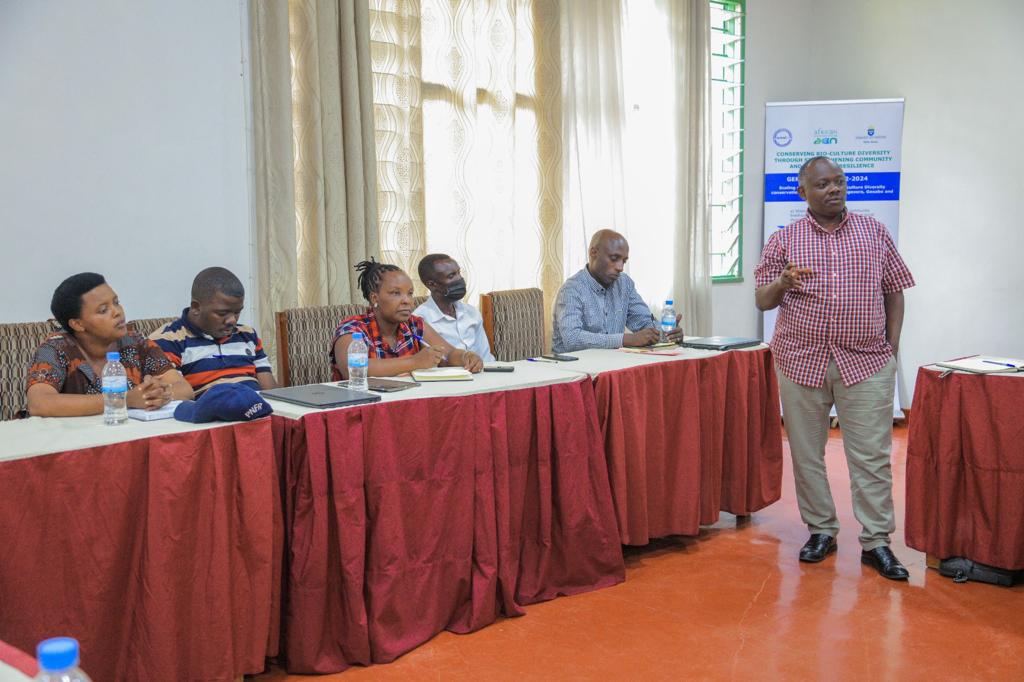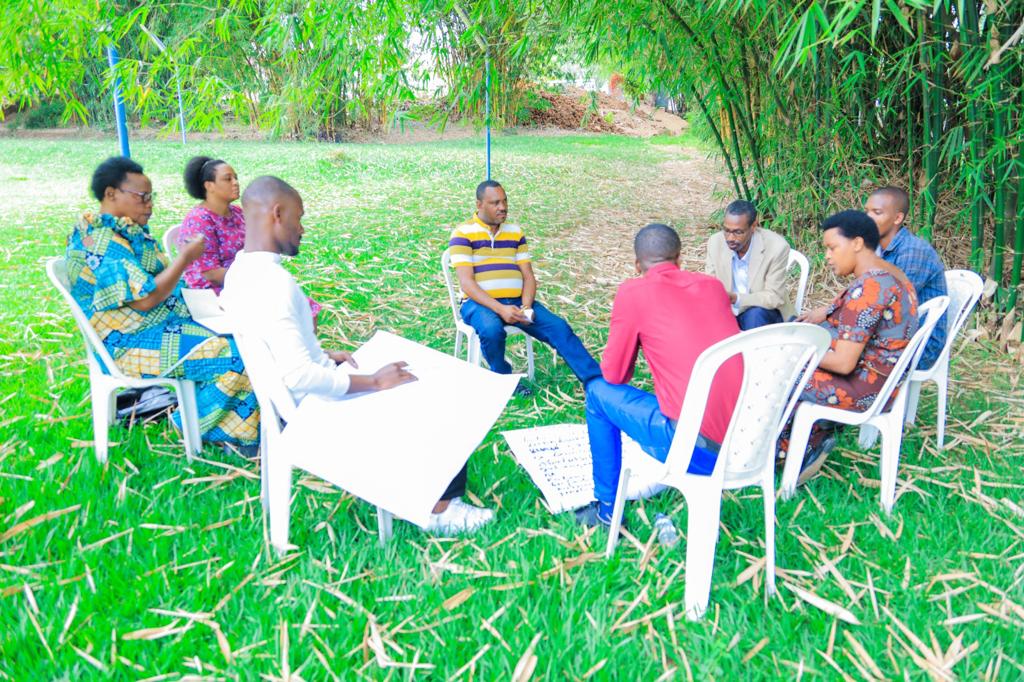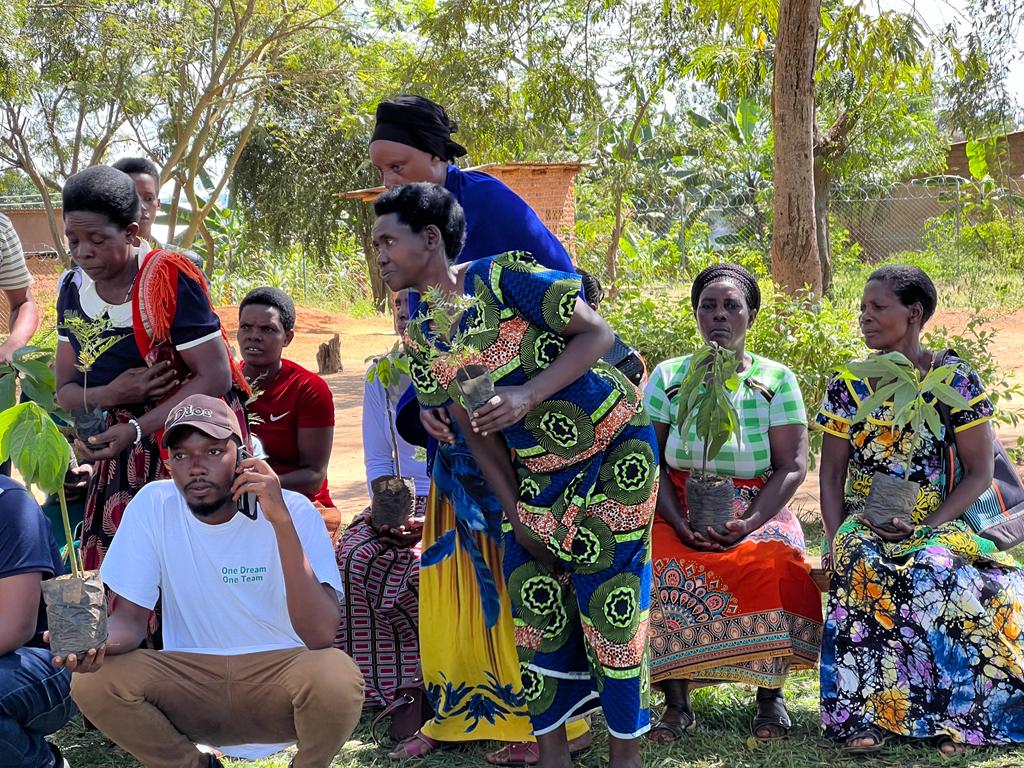
On 2nd of June 2023, GER-Rwanda conducted one-day workshop (in Centre Christus) in order to devise a peacebuilding module that takes into consideration the conservation of biodiversity and gender equality.
The main goal of GER-organized workshop was to include the traditional knowledge in biodiversity preservation in all its usual peace-building efforts.
The main reason behind this new GER’s move is that “biodiversity is key to our very existence”, explained Musore Innocent, the Head of GER-Rwanda.
Indeed, as Musore explained: “we depend on healthy ecosystems for our food, air, water and climate”. It is this mutual dependence of earthly creatures that result in healthy ecosystems. Moreover, the cost of failing to address the biodiversity crisis vastly outweighs the investments needed.
In fact, most of human activities that generate economic profit impact on our ecological system. For instance, building new houses for habitat requires first to destroy some places and their ecosystems so as to make the foundation and construct the house.
In fact, as we continue to build more houses to satisfy the needs of our population growth, we shall continue to harm our ecology! The same for fishing in oceans, cutting trees for timber or charcoal, mining, etc. The more we indulge in these lucrative activities, the more we harm our ecosystems and, ipso facto, our biodiversity!
Biodiversity is more than simply the collection of plants and animals on earth; it is about local ecosystems and promoting healthy conditions for all organisms to thrive. While protecting the rainforests sounds like a daunting task, there is a lot you can do to promote and preserve local biodiversity at home and in your community.
The biodiversity crisis is real, but you can do something to help vulnerable species around the world. Planting endangered species of trees, reforestation after mining or fetching for timber, finding time for ‘Akarima k’igikoni’ (garden for vegetables), etc. are some of those helping activities Rwandans can afford and have started doing!
Peacebuilding activities in GER generally focus on the youth as the main labor force for the future and the least involved in past conflicts in Rwanda.

Besides, Musore continues to explain, “we believe in working at the grassroots level, supporting youth to build on local strengths. We create activities that build the life skills of cooperation, mutual interest, and now peacebuilding activities that generate economic income without harming the ecosystems.
This is because we are fully aware that biodiversity connects all living things. When one living is affected by the other’s activities, we are all affected. Global challenges such as climate change, global warming, air and water pollution, etc, all resulting mainly from human activities, are current pressing issues that need urgent solution as they continue to affect our healthy environment.
Biodiversity conservation and peacebuilding efforts are related. And the stakes for nature are high: many of the world’s conflict zones are in places where biodiversity is highest. Conservation cannot happen without peace, but the role of nature itself in helping to broker peace is often overlooked.
This is where Conservation International is leading the way. Through our Global Policy and Govt Relations center, we are committed to fostering nature’s role in resolving conflicts for nature’s well-being and our own.
Between 1950 and 2000, 81 percent of conflicts took place wholly or partially within biodiversity hotspots. In 2009, about 40% of violent conflicts between countries were linked to natural resources. 40% of conflicts within countries have a link to natural resources.
“In a few decades, the relationship between the environment, resources and conflict may seem almost as obvious as the connection we see today between human rights, democracy and peace”, warns Wangari Maathai.
It is therefore high time we think twice and avoid conflict by avoiding harming our environment. As our ancestors had realized long ago: “ibintu ni magirirane!” (All things/creatures depend on mutual help!).

With regard to the Genocide against Tutsi and its consequences that GER is trying to overcome, one can assert without fear of being contradicted that one of its factors had to do with the degradation of Rwanda’s ecosystems.
Indeed, owing to Rwanda’s rapid population growth, and the resulting land scarcity for farming, some of the killers could kill their victims only to confiscate their property. i.e., land, cow and money,mainly.
Regarding the mutual benefits of our ecosystems, many genocide survivors attest that “the rain itself in April 1994 helped many to escape the death”. The same for ‘sorghum’ plantations that offered cover and concealment for the hiding Tutsi.
Some ‘animals’ as well, such as dogs, leopards and even ‘snakes’ helped to protect the hiding victims against their butchers!
Basanda Ns Oswald






